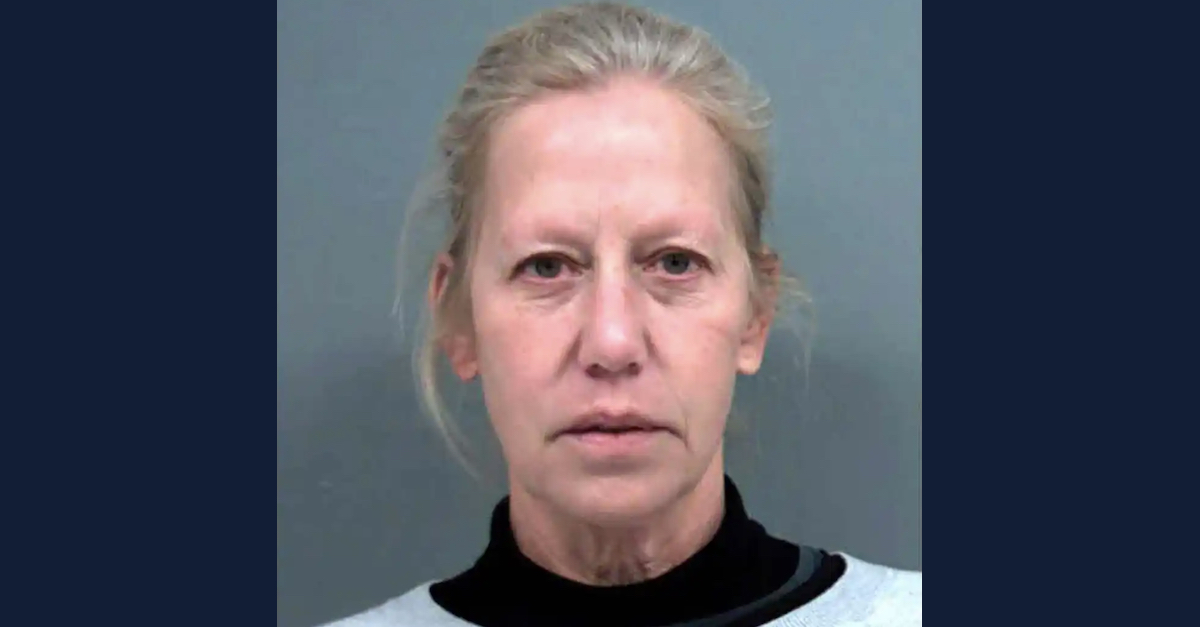
A Connecticut heiress who made surreptitious videos of three people – all of them involving minors – that involved “sexual desire” was sentenced to one year in state jail earlier this week.
Hadley Palmer, 54, owns a palatial estate in the posh Belle Haven neighborhood of Greenwich. After she’s released, she’ll spend the next 20 years on probation. The first 10 of those years, she’ll have to maintain status as a registered sex offender. And, for four of those years, her registration will be advertised publicly.
Those threadbare details, however, are about all the public is allowed in this case of affluent legal and sexual transgression.
Controversially, Stamford and Norwalk Judicial District Superior Court Judge John Blawie sealed Palmer’s case file earlier this year. The Associated Press sued to get the specifics out in the open and lost.
In that prior dispute, the AP complained that similar details in similar cases had yielded different results. But the court rejected that argument. The judge said the privacy of the victims was paramount – outweighing any public interest in the defendant’s actions. Additionally, he wrote that the case documents could not be sufficiently redacted to maintain the victims’ privacy interests.
Additional wrinkles with the case were noted by the AP:
Adding to the secrecy surrounding Palmer’s crimes was the fact that her name and court case numbers often disappeared from the state court system’s website in the months following her arrest. As her application for the probation program was pending, her name and case numbers only appeared on the site on the days she was scheduled to be in court, unlike other cases that appear daily on the website and involve the probation program.
Court officials did not know why Palmer’s information disappeared sometimes from the website.
On Tuesday, after sentencing, Blawie again ruled that additional details of defendant’s crimes should remain behind judicial lock and key.
That same day, Stamford-Norwalk State’s Attorney Paul Ferencek shed a small amount of additional light on the crimes.
Each of the victims, he said, were filmed in various states of undress, some fully nude, without their knowledge or consent. The videos, the prosecutor said, were made “to arouse her [Palmer’s] sexual desire” – and that of another, unidentified, person, according to the AP.
As Law&Crime previously reported, the underlying incidents occurred in 2017 and 2018 and all of the victims were minors.
An October 2021 search warrant said Palmer “photographed, filmed and recorded specific individuals without their knowledge or consent, and under circumstances where those individuals were not in plain view and had a reasonable expectation of privacy, and at least one photograph taken by the defendant depicted a person who was a minor.”
The defendant turned herself in that same month. A lengthy series of procedural motions, averted rehabilitation efforts, statutorily-mandated sealing, and other issues – even before the wire service’s intervention – kept the details of the case out of the public’s eye.
Under Connecticut law, first-time offenders can enter a pretrial accelerated rehabilitation program that demands case files be sealed. That’s what Palmer did at first after being charged with employing a minor in an obscene performance, conspiracy to employ a minor in an obscene performance, and child pornography in the second degree.
In January of this year, the defendant reached a plea deal with prosecutors on three of voyeurism and one count of causing a risk of injury to a child. A few days before that, she filed a motion to seal the entire case file. Prosecutors signed off on that request as well. The judge, after accepting the plea deal, accepted Palmer’s request – while also extolling the virtues for the victims in the case.
“The defendant contends that dissemination of the contents of the court file would reveal the victims’ identities within the communities where they reside and that no reasonable alternatives exist other than granting the defendant’s request,” Blawie wrote. “The state concurs, and while this is not a situation where a stipulation of the parties alone is ever sufficient to order sealing, in this instance, the court agrees.”
Palmer has already served 90 days in jail over the secret recordings.
That, some of her victims said, was already enough, Ferencek said.
One of the victims, on the other hand, who was identified as a woman, asked for a 30-year criminal protective order to be issued against the defendant. That request was granted by the court.
“Obviously this is an upsetting factual situation,” Ferencek said. “I think it is a fair disposition.”
Blawie noted that he accepted the plea bargain, in part, because he found Palmer to be a low recidivism risk.
“I do believe the plea agreement is in the service of justice,” the judge said, according to comments reported by the SF Gate. “Make no mistake, the defendant is paying a price for her actions.”
Palmer has been described as a “socialite” in the press. Her father, Jerrold Fine, is considered a hedge fund “pioneer.”
[image via Connecticut Department of Correction]